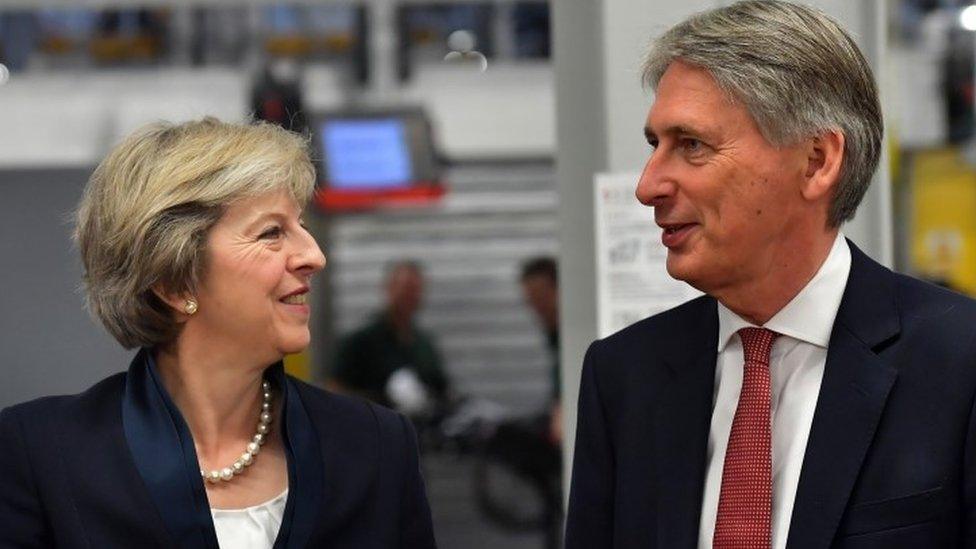Bumps or rollercoasters?
- Published
Theresa May: UK economy is fundamentally strong
With the pound plunging, but the stock market sky high, the chancellor's promised rollercoaster seems to have arrived.
But the prime minister, at her first conference in the job, is not in the mood to acknowledge the risk, or even use her Downing Street next door neighbour's metaphor.
Theresa May prefers instead to predict potential bumps in the road, politically a less dramatic way of proceeding when the image she wants to project is of calm.
When asked repeatedly if she is worried about what might happen to the economy, or whether the public should be concerned - time and again she chose instead to focus on the potential deal with the rest of the EU.

The chancellor said business confidence would be on a "bit of a rollercoaster"
The prime minister's language was notably less flamboyant about the possible swoops and dips of the economy than her chancellor, hardly known as an audacious orator.
But like any political leader at any political gathering, her responses are of the moment, of the time.
This week Theresa May wanted to show to her party members, who are largely Eurosceptic, that she is committed to leaving the EU - without giving anything away about how the government will proceed - and show a calm, brave face to the country.
Behind closed doors cabinet ministers express very different views about what our status outside the EU will be.

While Theresa May's priority is to give very little away about her actual plans for leaving the EU, in our interview it was clear that she wants to keep the options open on the vexed question of our membership of the single market.
On Sunday, her opening speech continued the implication that it was not an option, although sources behind the scenes stressed that no decision has been taken.
This afternoon, by saying she wants "the maximum opportunity for businesses here in the UK to be able to trade with and operate within the single market of the European Union" perhaps she sought to calm some nerves about the hideously titled 'hard Brexit' - a situation where the UK leaves the EU quickly, without worrying too much about preserving good relationships with our European neighbours.
Right now, in public, Theresa May is only willing to provide one broad answer to many questions.
With fraught and complex negotiations involving dozens of interested parties ahead, few in the Birmingham bubble this week expect that to last.